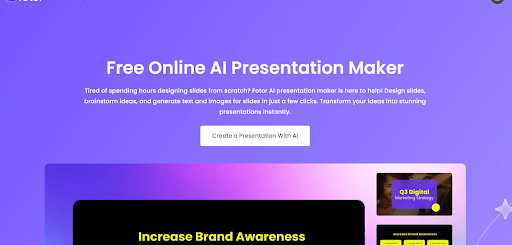Top 10 Mistakes to Avoid When Hiring Frontend Developers
Hiring the right frontend developer is crucial for creating user-friendly and visually appealing applications. However, finding and onboarding the perfect candidate can be challenging, especially if you’re not familiar with common pitfalls in the hiring process. This article explores the top mistakes companies make when hiring frontend developers and provides actionable advice to help you avoid them. By steering clear of these errors, you’ll be better positioned to hire frontend developers who can effectively bring your vision to life.
1: Not Defining Project Requirements Clearly
One of the most common mistakes is starting the hiring process without a clear understanding of your project’s needs. Without defined requirements, it becomes nearly impossible to assess a candidate’s suitability for the role.
Why This Matters
Frontend development encompasses a wide range of skills, from HTML, CSS, and JavaScript to frameworks like React, Angular, or Vue.js. Each project may require a specific subset of these skills.
Solution
Before starting the hiring process:
- Create a detailed job description.
- Outline the technologies and tools that the project will use.
- Specify the deliverables and timeline for the project.
For example, if you need someone with expertise in React, ensure that “React proficiency” is a clear requirement in your job post.
2: Overlooking Soft Skills
While technical skills are crucial, neglecting soft skills such as communication, teamwork, and problem-solving is a significant error.
Why This Matters
Frontend developers often collaborate with designers, backend developers, and project managers. Poor communication or inability to work in a team can lead to misunderstandings and delays.
Solution
Incorporate behavioral questions in the interview process to evaluate soft skills. For instance, ask candidates how they handle conflicts or collaborate with team members who have different working styles.
3: Ignoring Portfolio and Past Work
Focusing solely on resumes or certifications while neglecting a candidate’s portfolio is a critical mistake.
Why This Matters
A portfolio showcases a developer’s practical experience, creativity, and problem-solving skills. It provides insight into their coding style and ability to deliver user-friendly interfaces.
Solution
Ask candidates to share their GitHub repositories, personal websites, or links to live projects. Evaluate these examples for:
- Clean and maintainable code.
- Intuitive and responsive designs.
- Problem-solving approaches in real-world scenarios.
4: Skipping Technical Assessments
Relying solely on interviews without conducting technical assessments can lead to poor hiring decisions.
Why This Matters
A developer’s ability to answer theoretical questions doesn’t always translate to practical proficiency. Hands-on coding tests help validate their technical capabilities.
Solution
Use coding challenges or real-world tasks to assess skills. For instance:
- Ask candidates to build a small feature or fix a bug in a sample project.
- Use platforms like HackerRank or Codility for standardized coding tests.
5: Failing to Align on Cultural Fit
Cultural fit often takes a backseat during technical hiring, which can result in long-term dissatisfaction for both the company and the developer.
Why This Matters
A developer who doesn’t align with your company’s values, work culture, or communication style may struggle to integrate into the team, affecting overall productivity.
Solution
During interviews, discuss your company’s values, expectations, and work environment. Ask candidates about their preferred work styles and how they handle workplace challenges.
6: Offering Unrealistic Compensation Packages
Failing to offer competitive salaries or misaligning expectations about compensation can deter top talent.
Why This Matters
Skilled frontend developers are in high demand. Offering subpar compensation will drive candidates to competitors.
Solution
Research industry benchmarks and adjust your budget accordingly. Include additional benefits like remote work flexibility, professional development opportunities, and performance bonuses to make your offer attractive.
7: Rushing the Hiring Process
Hiring in haste often results in overlooking critical red flags or settling for subpar candidates.
Why This Matters
Frontend development is a crucial role that requires precision and attention to detail. Rushed decisions can lead to hiring someone who doesn’t meet your project’s technical or cultural requirements.
Solution
Take your time to:
- Screen applications thoroughly.
- Conduct multiple rounds of interviews, including technical assessments.
- Involve relevant stakeholders, such as team leads or designers, in the decision-making process.
8: Neglecting Long-Term Potential
Hiring based only on immediate project needs without considering long-term goals can lead to challenges down the line.
Why This Matters
Frontend development evolves rapidly. Developers who are unwilling or unable to learn new technologies may struggle to keep up with industry trends.
Solution
During interviews, assess candidates’ willingness to learn and adapt. Ask questions like:
- “What new technologies or frameworks have you recently explored?”
- “How do you stay updated on industry trends?”
9: Ignoring Responsive Design Skills
With the growing use of mobile devices, neglecting a candidate’s expertise in responsive design is a critical oversight.
Why This Matters
A developer without responsive design skills may struggle to create applications that function seamlessly across devices.
Solution
Include questions about responsive design principles in your interviews. For example, ask:
- “How do you ensure a web application looks good on both desktop and mobile?”
- “Can you explain how media queries work?”
10: Not Vetting Freelancers or Remote Developers
Hiring freelancers or remote developers without thorough vetting can lead to quality and communication issues.
Why This Matters
Remote work comes with unique challenges, including time zone differences and potential language barriers.
Solution
When you hire frontend developers remotely, prioritize candidates with:
- Proven experience in remote work.
- Strong communication skills.
- Availability that aligns with your team’s schedule.
Consider using collaboration tools like Slack, Jira, or Trello to streamline communication and task management.
Conclusion
Avoiding these mistakes when hiring frontend developers will save you time, money, and headaches. By clearly defining your project requirements, assessing both technical and soft skills, and ensuring a cultural fit, you can hire frontend developers who meet your needs and exceed expectations. Remember, a well-executed hiring process is an investment in your project’s success.


